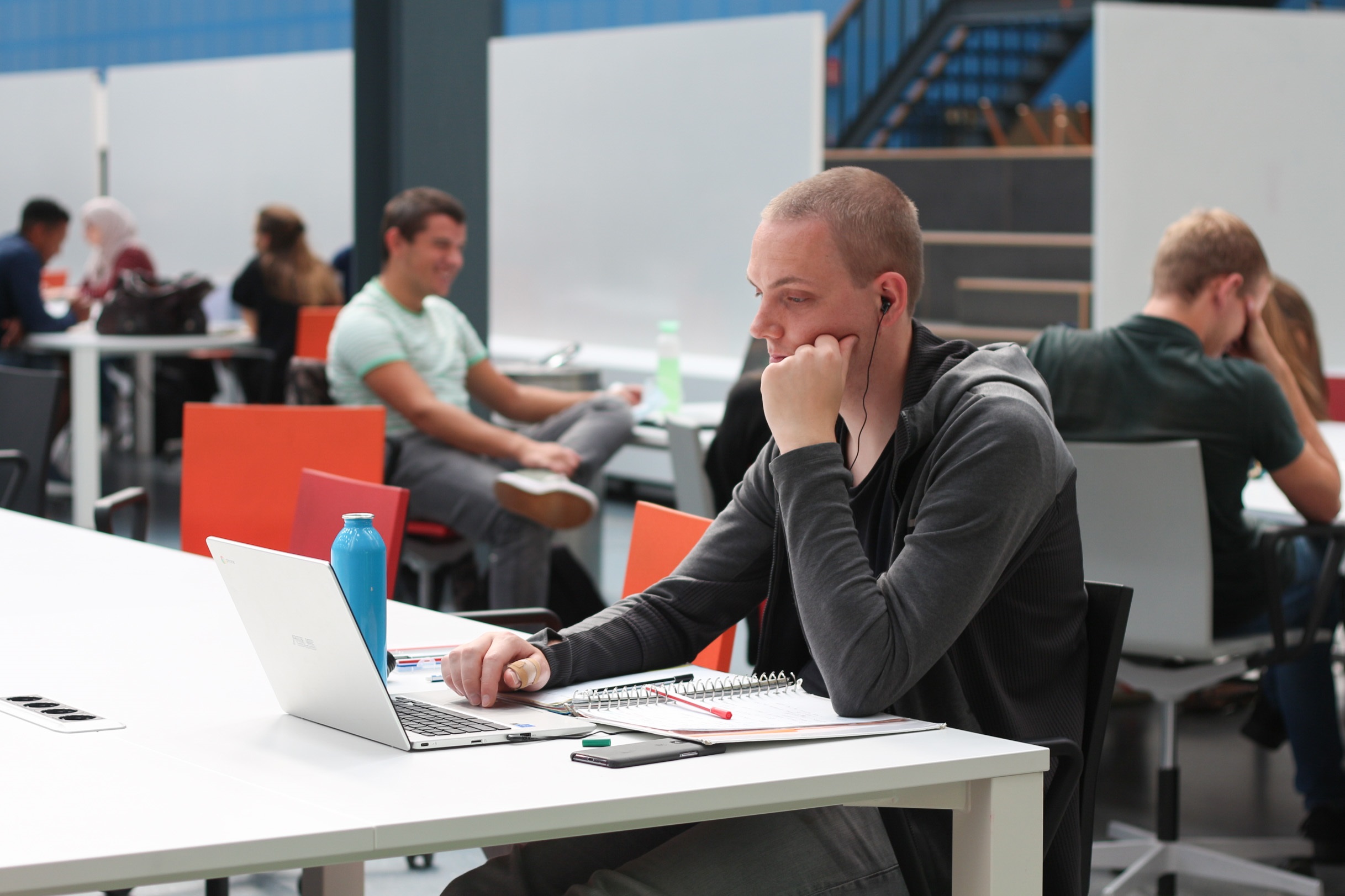Students gave their educational experience during the pandemic a grade of 5.7, the Inspectorate of Education reports. The crisis hit hard: students were less motivated.
Student working in the Faculty building of Industrial Design. (Photo: Justyna Botor)
In May and June, around 1,500 students filled out a questionnaire for the Inspectorate of Education regarding the effects of the coronavirus crisis. The students felt that the quality of education had dropped for nearly every aspect polled.
Take, for instance, interaction with other students during educational activities. Formerly this got an 8, they said, but during the crisis this grade sunk to a 4.8. A seminar or lecture via Teams is obviously less than ideal.
Lecturers
The same thing holds for interactions with lecturers: according to students’ recollection, they used to earn a 7.7, but during the crisis that fell to a 5.4. The students see this divergence in other things, too.
Maybe they’re just giving low grades because they’re frustrated and not because they really feel that way. That’s a distinct possibility, but the students do make distinctions. They aren’t negative about everything.
Nothing has changed in the grades students assign to lecturers’ computer skills: they think it deserves and deserved a 6.6. Computer facilities declined from a 6.9 in the past to a 6.4 during the crisis, which is a small dip compared to other items.
Lockdowns
Programmes did their best to keep classes going right through lockdowns and despite restrictive measures. The students rated these efforts with a score of only 6.4. It appears that things didn’t go that well in some places.
But you can’t lump all students together. The Inspectorate observes, for example, that students whose parents only completed secondary education valued their educational experience during the crisis more than students whose parents attended higher education. It might only be a couple of tenths of a percent, or in some cases an entire percentage point.
It also appears that disabled students have more criticism than others. Perhaps they encountered additional problems during the crisis. For whatever reason, they didn’t give their experience a borderline 6, but a disappointing 5.
Professional vs. academic education
Higher professional education students seem to have had a tougher time than those in academic programmes. This can be inferred, for example, from the examination marks. “About a third of students indicated that they received lower marks”, the Inspectorate reports, “with an overrepresentation of disabled and higher professional education students.”
The opposite – higher scores on exams – was also observed: one in four students in academic programmes and one in ten students in applied science programmes.
There are also differences between students from affluent families and those from families with less disposable income, and between students in different degree programmes, but one thing is clear: the crisis hit hard.
Not IT
Politicians have earmarked money for higher education to be used to limit or repair the damage. What should the higher education institutions do with that funding? When you ask students, the majority choose activities that strengthen togetherness and improving counselling for student wellbeing. Only one in five said it should be spent on improving IT facilities.
HOP, Bas Belleman
Translation: Taalcentrum-VU
Do you have a question or comment about this article?
redactie@hogeronderwijspersbureau.nl


Comments are closed.